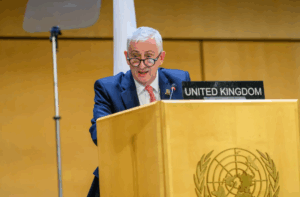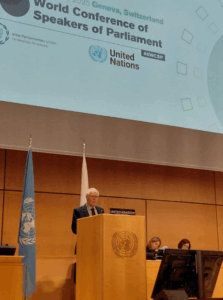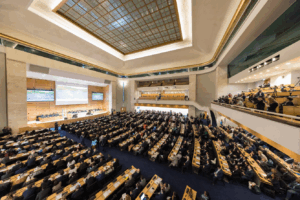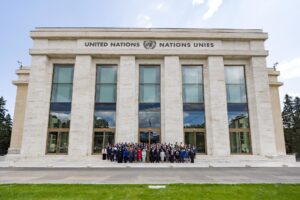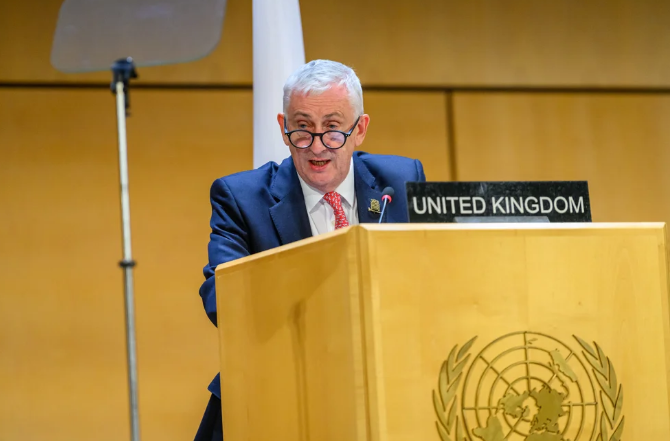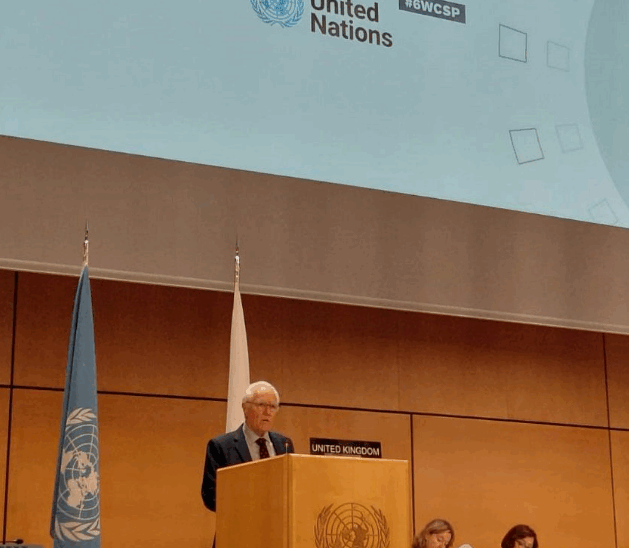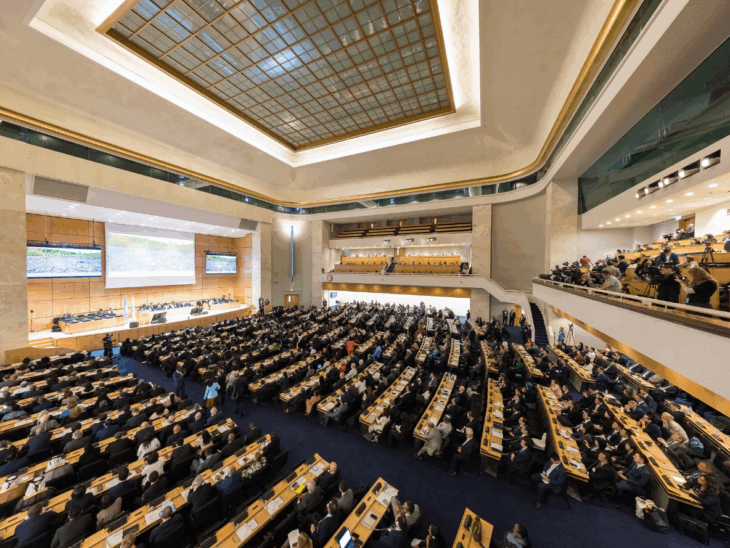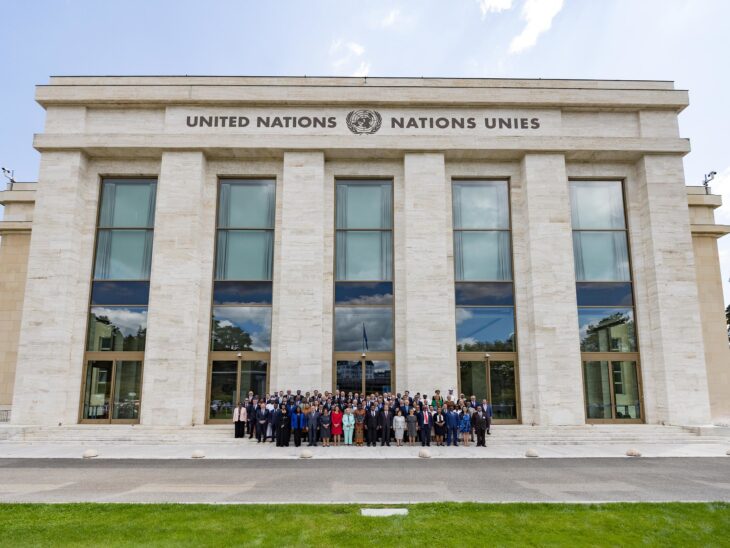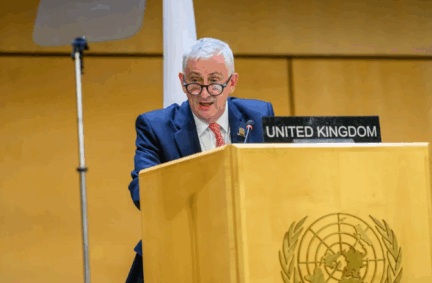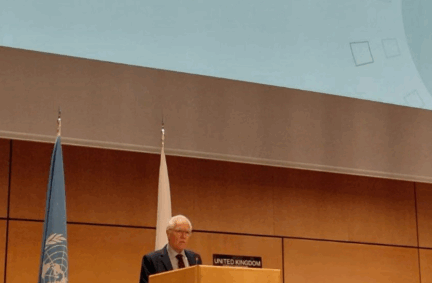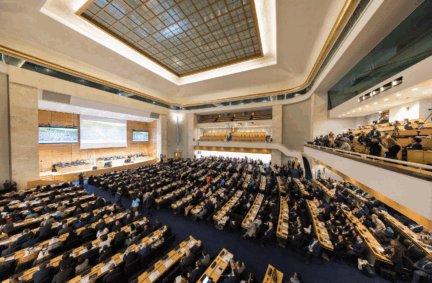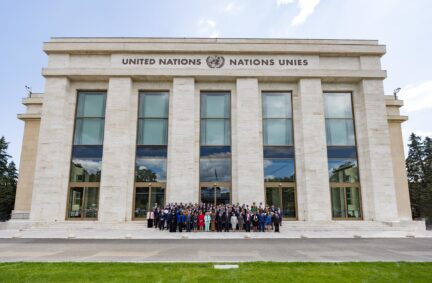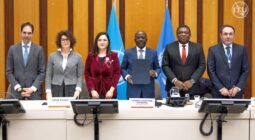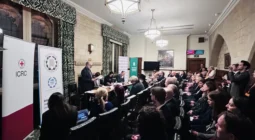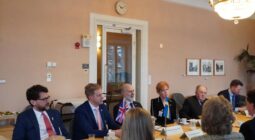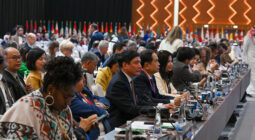

World Conference of Speakers of Parliament calls for renewed global unity amid rising crises
Parliamentary leaders from some 120 countries gathered at the United Nations Office at Geneva for the Sixth World Conference of Speakers of Parliament, a summit convened every five years by the Inter-Parliamentary Union (IPU) in partnership with the United Nations (UN).
The Conference, regarded as the world’s top parliamentary forum, was held from 29 to 31 July 2025. It gathered hundreds of participants, including 102 Speakers of Parliament, 34 Deputy Speakers, MPs, diplomats, UN officials, experts, and representatives from civil society, academia and the media.
The Conference took place amid rising global tensions and regional conflicts. After three days of debate and negotiations, the Speakers adopted a Declaration outlining the key transitions that are needed to advance peace, justice and prosperity, underpinned by a renewed commitment to deepen parliamentary engagement with the United Nations through a call for stronger and more effective multilateralism.
The Declaration highlights the need for greater collaboration and enhanced political will to tackle issues including climate change, armed conflict, economic instability and digital transformation. Parliamentary leaders underscored the view that global challenges require coordinated responses and solidarity among nations.
The Speakers also stressed the need to restore public trust in democracy and in its key institutions. The Declaration urges governments to fully integrate the UN Sustainable Development Goals into national policy, to tackle the rise in misinformation, and to ensure that legislation is grounded in science and evidence.
Security, the parliamentarians declared, should not be viewed solely through a military lens. Instead, they called for a broader approach that addresses the root causes of insecurity, from poverty and inequality to environmental decline.
Gender equality was a central theme, shaped in part by the 15th Summit of Women Speakers of Parliament, which preceded the Conference. The Summit, co-hosted by the IPU and the Swiss Parliament, reinforced calls to put women’s empowerment and gender parity at the heart of efforts to build peace and foster innovation.
Discussions in Geneva covered the need for economic reform, with parliamentary leaders supporting a shift towards sustainable, people-centred models. The Declaration advocates for investment in the green and care sectors and calls for greater protection of vulnerable populations.
As part of its forward-looking agenda, the Conference also called for stronger regulation of artificial intelligence and digital technologies, ensuring they are governed responsibly and used peacefully, with respect for fundamental rights and for the benefit of all of society.
Quotes:
Michael Douglas, actor, activist and UN Messenger of Peace, opening the Conference, said: “When your faith is in short supply… look to [the] dreamers. To progress, and those who make it possible. Most of all: look to one another. To leaders willing to choose compromise over ego. To parliaments that act as lighthouses, amidst a tempest of authoritarianism. To legislative bodies, struggling towards inclusive democracy – but refusing to give up. And to the parliamentarians not just in here, but out there, linking arms with the people in the fight against cruelty, against corruption, against kings.”
Tulia Ackson, IPU President, said: “We are all products of our communities and of our interaction with others, starting with our parents, day after day, for our entire lives. In Africa we express this idea in one word: Ubuntu. Which roughly means: I am, because you are. Likewise, there is no such thing as a nation that can live and prosper in isolation from the rest of the world. There can be no national interest defined in total juxtaposition to what is good for the world as a whole. Now more than ever, as the world has grown smaller and more interdependent, countries need to work together to find solutions to their common problems.”
Maja Riniker, President of the National Council of Switzerland, said: “We must put gender equality at the very centre of peace and security, now. Conflicts disproportionately affecting women and girls, gender-based violence used as a weapon of war have to stop. Women must be in peace negotiations and peace processes equally with men. We must ensure they are not only present but empowered, supported and resourced to take decisions at every stage of diplomacy, conflict prevention, negotiations, and post-conflict recovery. We must also ensure that international humanitarian law is upheld and that the consequences of conflict are addressed in a gender-responsive manner.”
Tatiana Valovaya, Director General of the UN Office at Geneva, said: “The United Nations deeply values its cooperation with parliaments, which are the beating heart of democracy. Parliamentary leadership is indispensable to the multilateral system: you craft laws, shape budgets, and hold governments to account. We are very pleased that the new era for the Assembly Hall starts with this World Conference.”
Martin Chungong, IPU Secretary General, concluding, said: “Looking at the number of Speakers and other high-level parliamentarians who have gathered here in Geneva and spoken so passionately over the past two days about their priorities to build a better world, I am filled with a renewed hope. A renewed belief that there is a future for the multilateral system that the UN has been building for 80 years… and the IPU for 136 years. A belief that we are stronger together, that dialogue and diplomacy are better tools for solving problems than bullets and bombs, and that parliaments can play a key role in reinvigorating global cooperation.”
Both Houses of the UK Parliament were represented through the participation of the Speaker of the House of Commons, the Rt Hon Sir Lindsay Hoyle MP and the Lord Speaker, The Lord McFall of Alcluith, supported by the Clerks and staff of both Houses and the BGIPU Director.
